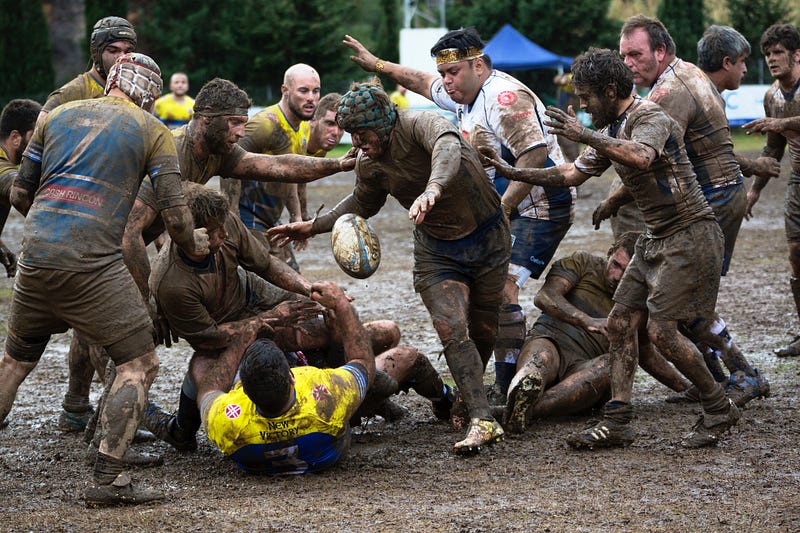I want to share with you a simple productivity tip that can help anyone get ahead in our ever changing world. If you follow my advice, you’ll be more agile at work and in your personal life.
[Would you rather watch the video edition of this post? - releasing soon.]

There are plenty of articles and books about productivity and how to get ahead in the life and business.
I’ve read quite a few and could probably write a book on productivity even though I’m no CEO or motivational speaker.
The basic structure of a post like this should tell you the key to success is reading because it exposes the reader more new ideas than they would during their normal daily interactions, and then go on to give you a list of books that successful CEOs have read. But I don’t want to do that.
If you take a close look at the lists provided by those other articles, the majority of these books are from the non-fiction section, some biographies but only a few books that are works of fiction. (The Remains of the Day was the most common work of fiction listed.) But on all the lists that I have looked at it was very rare to see any works of science fiction. (The only one that did was Atlas Shrugged).

At least sports is real, that Star Strek stuff is for people who can’t handle life.
A Personal Story.
Before I share with you that productivity tip, let me tell you a personal story…
I’ve loved science fiction for as long as I can remember. The stories of spacemen flying around in space ships and fighting off Bug Eyed Monsters with ray-guns fired up my imagination more than anything else. But apart from my family only two other people really encouraged me to read science fiction and fantasy. Both were teachers, one encouraged me to use my imagination and the other provided me with science fiction and fantasy recommendations.
Everyone else either dismissed the genre or openly mocked it.
My peers would tease me and say “At least sports is real, that Star Strek stuff is for people who can’t handle life.”
Or from teachers I’d hear “Science fiction is not real literature, this is why we’re going to be studying something useful, like Shakespeare.”
So what does science fiction have to do with productivity and becoming more agile in life and work?
Well here it is… Are you ready for it? (this next sentence is the heart of the article… are you ready for it?)
No matter who you are or what you do… you should read science fiction.
Why?
Because science fiction is now, more than ever, relevant to our ever changing world. It prepares you for what’s around the corner. Let me explain further.
Although my teachers and peers didn’t see it, good science fiction is useful because it predicts change and, in our fast paced, quickly changing world being agile and prepared for change is now a much sought after skill.
Science fiction predicts change.
What’s important about science fiction, even crucial, is the very thing that gave it birth — the perception of change through technology. It is not that science fiction predicts this particular change or that that makes it important, it is that it predicts change. — Isaac Asimov.
How does science fiction predict change?
A thought experiments takes a hypothetical possibility, one which can be anchored in reality, and explores the consequences or outcomes. Science fiction specifically looks at any science and technology that may develop within that given scenario and their consequences.
Good science fiction explores change and how this change may affect us. Regardless of their intended goal, whether you agree with the direction the author takes the story or not, all thought experiments display a patterned way of thinking that is designed to allow us to explain, predict and control events in a better and more productive way.
That is a major benefit of reading science fiction.
Ursula Le Guin says, after reading a good science fiction novel should come away changed.
In reading a novel, any novel, we have to know perfectly well that the whole thing is nonsense, and then, while reading, believe every word of it. Finally, when we’re done with it, we may find — if it’s a good novel — that we’re a bit different from what we were before we read it, that we have been changed a little, as if by having met a new face, crossed a street we never crossed before. But it’s very hard to say just what we learned, how we were changed. — Ursula Le Guin.
Science fiction is a toolkit for life.
The great thing about reading science fiction is that because we’ve suspended our disbelief and been changed by living in the world created by an author, if only momentarily, we are now open to new ways of thinking. We’ve actually been shown how to conduct a thought experiment.
For me, I’ve discovered that if the author takes a story down a path I didn’t like, while it’s frustrating at the time, these books are better, because they’ve made me think more. I have to consider why I didn’t agree, what I would do differently and why. What’s even better is if you can discuss this with someone else after you’ve clarified your thoughts.
So now, after reading a science fiction book we have been shown one possible way of adapting to change, responding to the unpredictable, and we now have a new skill. That skill is how to imagine future outcomes based on incomplete information. This allows us to be more agile at work and in our daily lives.
Ten to fifteen years ago we had time to come to grips with new technology when they were released, now though, technology is changing the world faster than we as individuals, or our society or our institutes can keep up with. We are entering uncharted territory.
Science fiction is a toolkit. It allows you to look at what is happening now, and predict what may come next, and how to get there — no matter how big or small the issue.
The real world is catching up to the imagined future of science fiction. What we thought was science fiction yesterday may well be reality tomorrow. This is why reading science fiction is just as important as reading a non-fiction book.
Liked what you read? Why not...
Then head over to my Facebook page The BistroMath to join the conversation. You can also follow me on Twitter or YouTube. To do so click on the images below.






Comments
Post a Comment
Feedback is welcome.